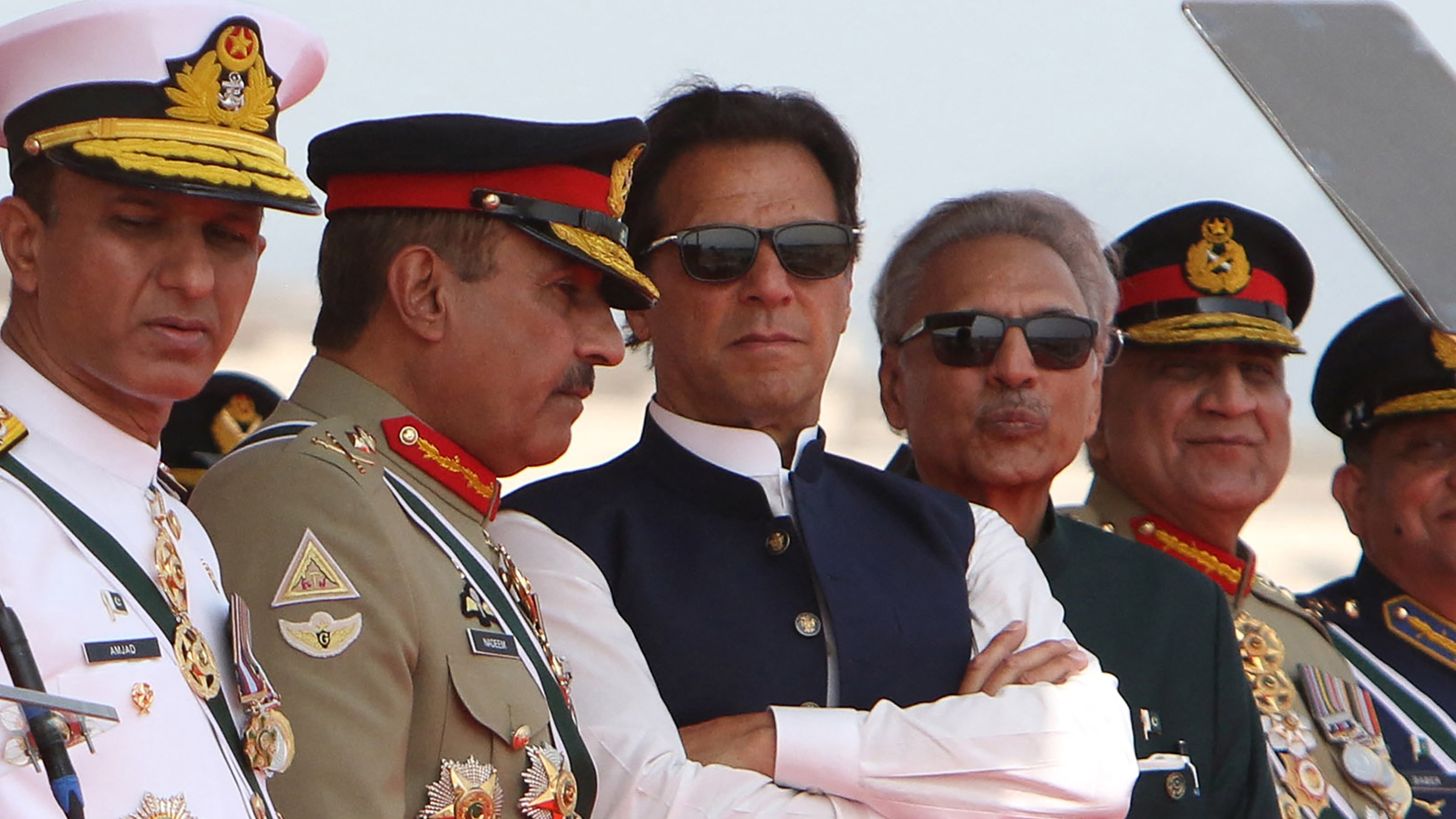Is Imran Khan’s innings as Pakistan’s PM almost over?
Opposition parties table no-confidence motion after protests shake Islamabad

A free daily email with the biggest news stories of the day – and the best features from TheWeek.com
You are now subscribed
Your newsletter sign-up was successful
Imran Khan is fighting for his political survival as he attempts to rally supporters while facing a no-confidence vote triggered by mass demonstrations.
Pakistan’s “political temperature” has reached “boiling point” in the wake of the move by opposition parties, said The Times of India. A string of defections has also stripped Khan of his parliamentary majority amid corruption and mismanagement allegations.
The no-confidence vote will be tabled within seven days, setting up the prime minister for the “toughest challenge” of his political life, Al Jazeera reported.
The Week
Escape your echo chamber. Get the facts behind the news, plus analysis from multiple perspectives.

Sign up for The Week's Free Newsletters
From our morning news briefing to a weekly Good News Newsletter, get the best of The Week delivered directly to your inbox.
From our morning news briefing to a weekly Good News Newsletter, get the best of The Week delivered directly to your inbox.
Hit for six
Khan was a sporting hero in Pakistan after captaining the country’s cricket team to victory in the 1992 World Cup. He subsequently gained political power “on a promise to sweep away the entrenched corruption and cronyism of two-party dynastic politics that had dogged the country since independence” in 1947, The Times said.
But “he has struggled to turn around the stagnant, debt-laden economy” since becoming PM in 2018. During his time in office, “inflation has soared to record highs, with the cost of basic items such as food and fuel climbing by up to 16%.
“Unemployment is rising, the country’s foreign reserves are depleted and the national deficit has spiralled,” the paper added, leaving the “handsome, charismatic hero on the field” facing increasing criticism.
Opposition figures have suggested that Khan has “fallen out with the powerful military, which mostly determines who will rule, a charge Khan and the military deny”, Al Jazeera reported. Khan has publicly blamed the threat to his leadership on “foreign powers”.
A free daily email with the biggest news stories of the day – and the best features from TheWeek.com
Appearing at a rally of his ruling Pakistan Tehreek-e-Insaf party on Monday, he told the crowd that “funding was being channelled into Pakistan from abroad” in an effort to dislodge his government, adding: “We will not compromise on national interests.”
Khan has provided “no details of the conspiracy”, said The Telegraph, and analysts claim his problems stem from “mismanaging the economy and failing to curb soaring inflation, which is causing deep economic pain to many of his supporters”.
His situation has been worsened by a number of defections that have left him without a majority in the nation’s parliament.
The opposition is now “confident that they can get the support of 172 members in the house of 342 to dislodge the government”, The Times of India said. Khan claims he has “support in the house to foil the attempt”.
Khan stumped?
With days to go until the no-confidence vote, the embattled PM still has “plenty of time for frantic horse-trading” in an effort to win enough support, The Telegraph said.
Sumedha Dasgupta, senior Asia analyst at the Economist Intelligence Unit, told the paper that he believes Khan will survive, but warned that “there are significant risks surrounding the outcome, including the possible involvement of the military”.
“The ousting of Mr Khan would be likely to lead to some form of caretaker government, ahead of the national elections in 2023, and potential military involvement,” Dasgupta added.
Should the vote succeed, Khan will “become the first Pakistani prime minister to be ousted by a vote of confidence”, The Times reported. But true to his flamboyant style on the cricket field, he “is not going down without a fight”.
He has “turned his fire on old enemies”, accusing opposition figures of “bribing his MPs to ward off corruption investigations against themselves”. Once known for appearing alongside “models and actresses” in “London’s best nightclubs”, his “politics and religion have grown increasingly conservative” in an effort to secure his base.
In recent months he has “denounced political opponents as devils”, the paper added. Khan also prompted “outrage last year for comments blaming declining standards of modesty among women for a surge of rape cases in Pakistan”.
Khan has also criticised Western nations. At the rally earlier this week, he accused his opponents of being “slaves of America”, telling his supporters that “we won’t accept being slaves of anyone. Pakistani people have to decide whether they will allow conspirators to succeed with foreign money.”
In an effort to save his government, he has pledged to hand “the post of chief minister of the country’s largest province, Punjab, to one of its coalition partners”, Al Jazeera said. But the effort seems to have failed, with Bilawal Bhutto Zardari, leader of the opposition Pakistan People’s Party, stating that he has the numbers to “oust” Khan.
“Imran Khan is on a ventilator, fighting for his government’s survival,” Najam Sethi, a political commentator and former chief minister of Punjab, told The Times.
Despite his bullishness about the no-confidence vote, it appears that the PM “has lost the confidence of a majority of the members of parliament”, Sethi added.